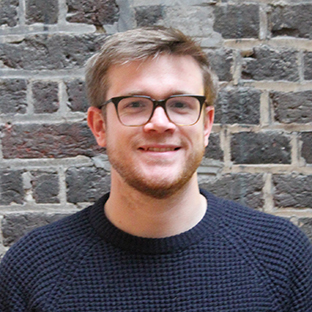As a recent addition to the RSA Global team, I have joined in a tumultuous time for the debate surrounding globalisation and internationalism. 2016 has been a series of socio-political earthquakes with serious aftershocks. With national and international commentary seeking to reflect upon the reality of isolation, abandonment and anger that communities have voiced with their votes, what is it that can begin to bring us back together?
Social Moment for change
We have been discussing social ‘moments’ of change here at the RSA and whether there are particular triggers that create the conditions for behavioural and/or system change. These ‘moments’ exist when an emotive response to an event is elicited which challenges your current belief or value system. If we are to believe that we are in the midst of an incredibly significant global social moment, what is it that we wish to change, and how? At the RSA we exist to pursue social change, and there is now a global climate in which social change (any change) has been demanded by electorates in a stunning fashion. We need to harness this impetus for broad social and economic changes stemming from the disillusionment of citizens with the status quo in order to achieve a more inclusive society.
Direction from the work of the RSA
The work of the RSA across our three change aims, Education, Economy and Public Services is committed to providing answers to the question of how we might change the current landscape. I feel emboldened by the vision, scope and ambition of the projects that my colleagues are undertaking. Understanding how we build inclusive growth into our economies. What the world of work will look like in the future and how policies such as Universal Basic Income might shape that world. Investigating how creativity and the arts in education can build the capabilities of pupils in school. How we can stimulate communities of practice to provide a social model of health. What an environmentally sustainable planet looks like. These are a selection of the challenges that we are tackling at the RSA, and of course they are not unique to the UK.
Do you think that the research and conversations taking place within the organisation can have an impact on your locality?
Building bridges and broadening the conversation
At a brilliant recent Fellows Engage event in London I had a conversation with a Fellow about echo chambers. She was concerned that with many of us living in worlds of self-reinforcing opinions that as citizens we are all drifting away from each other towards ever-more polarising opinions. So this blog is the start of my attempts to broaden the conversations I’m having.
I have recently been tasked to look at examples of how socially minded organisations have grown internationally, and I want to find examples of how this has happened in an inclusive way. I’d like fellows to share organisations they know of that have brought together groups with competing opinions and have created space for more inclusive debate for citizens with differing socio-economic perspectives. Please respond in the comments below.
At a time of year when in the UK we traditionally are encouraged to take time to reflect on what has been, and perhaps what might be to come, it is more important than ever to step out of our comfort zones and share opinions with those who might not mirror our own. By building bridges between competing views of the world we can navigate ourselves away from the isolationist environment of our echo chambers, and pursue change in a more inclusive way.
Related articles
-
Beyond borders: the world after Covid-19
Adanna Shallowe
Adanna Shallowe imagines the world ten years on from the Covid-19 global pandemic. How has the global community responded?
-
Building global connections in times of coronavirus
Divya Marie Kato
In early April, the very first RSA Virtual Coffeehouse travelled all the way to Japan. Tokyo-based artist Divya Marie Kato, who facilitated the event, shares her thoughts about this global conversation.
-
Does the global response to coronavirus suggest we can confront climate change?
Anthony Painter
What can we learn from the coronavirus pandemic about the conditions that we'll need to tackle the climate emergency?





Join the discussion
Comments
Please login to post a comment or reply
Don't have an account? Click here to register.
A lot of us highly intelligent folks have a tendency to jump right into the fun part of things where we propose solutions. But we rarely have spent the time to listen to all the different perspectives of the problem, so we tend to only find a solution that is 2D, flat, and lacking in well-roundedness. And so even with all the most clever technology and science, we fail to solve the problem effectively. Maybe we get a bit more than 50% success, but that's still a grossly failing grade by anyone's standards.
So, we need to step backwards for a bit, and start asking for more opinions/perspectives on the problem. We can start asking anyone and everyone, everywhere and everywhen, "What precious person, place, or thing have you lost, or feel is threatened?" and "What parts of reality do you most want to spend your life creating and/or exploring?"
I've been working on creating a process to facilitate this kind of meaningful storytelling, so that people can better understand and clarify their answers. There are three versions: one for therapeutic use (past: telling history), one more meditative use (present: focusing attention), and one for use in strategizing (future: goal attainment). But for now I've been focusing on the therapeutic use, for both adults and children, since that's where most of us are, as we react to all the negativity and conflict in our lives. My long term goal is to create a sort of community media lab/studio (or a global network of them!) that brings artists, educators, and techies together to help people move from confusion to clarity and THEN from problem to truly effective solution.